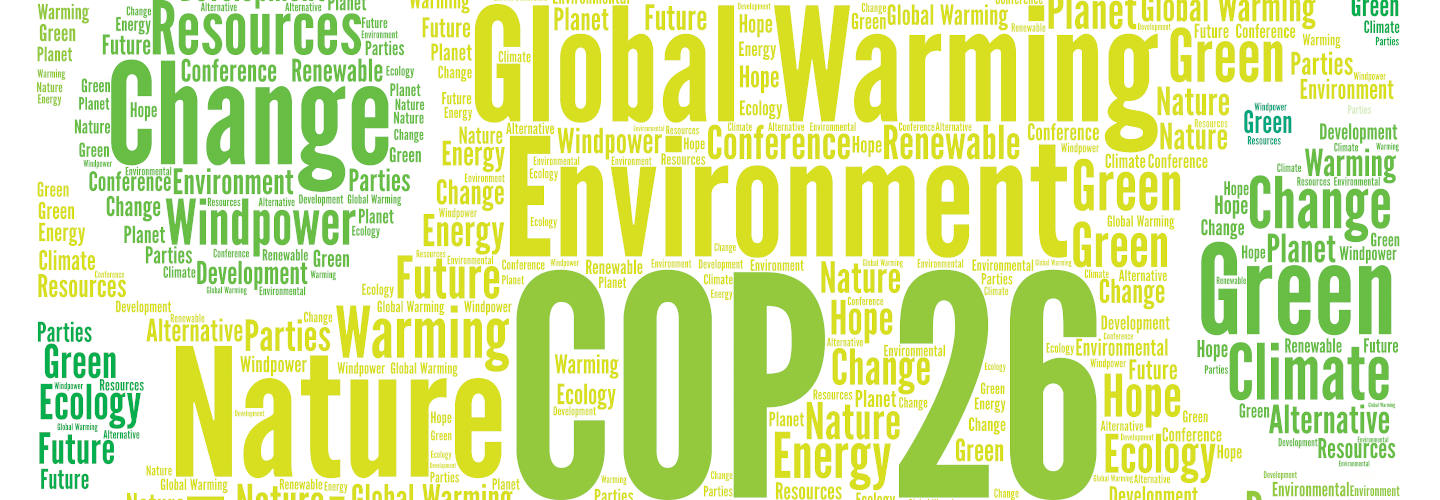How businesses can start to be part of the solution, and not the problem, when facing the climate crisis
Bayes experts discuss the crucial role of business when tackling climate change in ‘Mobilising business to tackle the climate emergency: Prospects and perils’.
Businesses must stop being part of the climate problem and change their habits to become part of the solution if the UK is to reach net zero by 2050.
Ahead of the COP26 summit, beginning in Glasgow this weekend, academics leaders from Bayes Business School (formerly Cass) have highlighted the size of the challenge in the first of the series ‘COP26@City’, which demonstrate City’s commitment to reducing its environmental impact and playing its part in responding to the global climate challenge.
At the summit, governments will be asked to commit to ambitious 2030 emissions reductions targets that align with the net zero targets by 2050. This includes limiting global warming to well below two degrees and aiming for 1.5 degrees – an agreement made six years ago in Paris in 2015.
Professor Bobby Banerjee, Professor Paula Jarzabkowski and Dr Aneel Keswani, from Bayes Business School, produce research which explores various aspects of climate change and sustainability.
Professor Banerjee’s expertise is in corporate social irresponsibility, sustainability, climate change. He began the discussion by highlighting the size of the challenge facing society and businesses and highlighting the role both can play in helping to fix the challenges we face.
“Can we avoid two-degree centigrade warming?” said Professor Banerjee. “If you had asked me this question 10 years ago, I would probably have said yes. A very difficult task but possible. But today, I would say it is simply not possible. A lot of scientists, policymakers and environmentalists agree it is impossible to avoid, and this will have an enormous impact on the planet and our economies and business.
“Business has a crucial role to play. They largely caused the problem so they must be a part of the solution.”
Professor Jarzabkowski, Professor of Strategic Management, began by discussing the need to make better use of ‘development insurance’ to support those countries that are most vulnerable to loss of life and livelihood from climate-driven disaster.
Her research focuses on the need to respond rapidly to such disasters, using innovative insurance products that ensure pay-outs for shelter, food, and water in the immediate aftermath of disaster. These products, delivered through multi-country risk-pools, are an effective way to use development and donor funding to support countries in disaster risk planning and mitigation in the face of changing weather patterns, argues Professor Jarzabkowski.
“This research won’t fix climate change, but it is shows that multilateral negotiations can be used to address some of the effects of climate change for the most vulnerable. Given that solutions to climate change will involve multilateral collaboration, evidence of these successful risk pools can be hugely important moving forward.”
Dr Keswani, Reader in Finance and Director and Founder of the Centre for Asset Management Research at Bayes, talked about ways in which institutional investors can help with tackling the climate emergency.
Institutional investors own the majority of shares in corporations around the world which puts them in a unique position to influence the environmental policy decisions of these firms. However, Dr Keswani pointed to a survey which showed that 40 per cent of respondents believe global warning of more than three degrees will occur. Another survey showed that the top reason for driving the integration of climate risk policy into firm investment process is to protect the reputation, followed by moral and ethical obligations.
“If institutional investors don’t believe climate change targets will be met, why will they spend the time to try and achieve those objectives? If you don’t believe that climate change is one of the most important risks of the business that you’re investing in, why would you push that business to change? More needs to be done to persuade institutional investors of the importance of climate risk, and that targets can be met.”
The final presentation from Professor Banerjee, Professor of Management, discussed climate action, or inaction, in the time of Covid-19.
With a record fall in fossil fuel emissions in 2020, the virus succeeded where climate policies have failed in the last 25 years. However, as we wait for the world to return to ‘normal’ Professor Banerjee questioned whether ‘normal’ was the problem in the first place?
“Can the pandemic allow us to imagine a more sustainable world, and what lessons can be learned from the pandemic? We need to make different choices, but early signs of rising emissions following the lifting of lockdowns reflect our desire to return to the fossil fuel economy. It appears that our species is unwilling or unable to learn from our mistakes and is bent on the re-joining the road to planetary destruction.”
Professor Banerjee added that business has a role to play, citing a need to switch from “accumulation to distribution, an economy of extraction to regeneration, from competition to co-operation”. He also discussed how the pandemic had changed his approach to teaching.
“The pandemic made me question what kind of CEO and leader I want to help create. Am I creating the next generation of investment bankers who can get rich from the next financial crisis or more responsible leaders who want to transform business?
“I wanted to make a business case for sustainability, but I was asking the wrong questions. If we really have the wellbeing of the planet and its people in mind, we need to reverse our priorities and think about how we can justify the existence of business from a sustainability perspective. Otherwise, we risk being the only species on the planet that is sufficiently intelligent to recognize our immediate extinction but too foolish to prevent it.”
For a full list of events in the COP26@City series, visit the City website.
Ends
